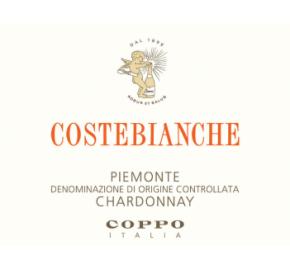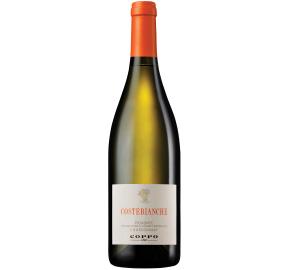Coppo - Chardonnay - Costebianche 2022
Description
Costebianche is the youngest Chardonnay produced by Coppo. This wine gets its name from the vineyards planted in naturally white soils of clay and calcareous marl.
Tasting notes
This bright Chardonnay from Piedmont is partially aged in wood and the rest is aged in stainless steel. The result is that the wine shows creaminess and density by a lively citrus note does pop through as well. Pair with vegetables, gazpacho, stuffed zucchini flowers, sole and grilled seafood.
Estate
The historical underground wine cellars of Coppo are a UNESCO World Heritage site. They are part of the network of underground cathedrals, a temple of wine dedicated to its history and the hard work of their history. Built beginning in the late 18th century, initially intended as small cellars to conserve wine, they were expanded from 1800-1900 to what they are today. The historical wine cellars of Coppo extend under the hill of Canelli for a total of 5 thousand square meters (16,400 ft) and a depth that reaches 40 meters (130 ft).
Technical data
Denomination: Piemonte doc
Grapes:Chardonnay
Exposure: south - south east - south west
Type of soil: clayey-calcareous marl with prevalence of silt
Vineyard altitude:200 m above sea level
Training system: Guyot
Plant density: 4,000 plants per hectare
Serving temperature:12 ° C.
Grapes:Chardonnay
Exposure: south - south east - south west
Type of soil: clayey-calcareous marl with prevalence of silt
Vineyard altitude:200 m above sea level
Training system: Guyot
Plant density: 4,000 plants per hectare
Serving temperature:12 ° C.
Vineyard
The vineyards are located in the South of Asti with Southern exposure. The soil is composed of calcareous clay marl with prevalence of silt at an altitude of 650ft.
Vinification
Harvest begins with a strict selection in vineyards of the healthiest, ripest grapes that were hand collected in 40lb picking baskets. The maceration with the grape skins is short with soft pumping over the skin cap. Malolactic fermentation was partially carried out, 20% of the must is fermented and aged on fine lees in French oak barrels.


